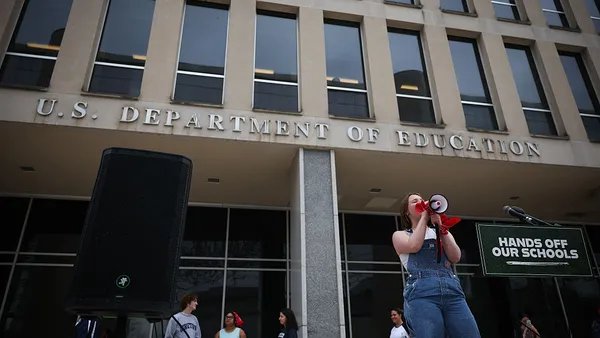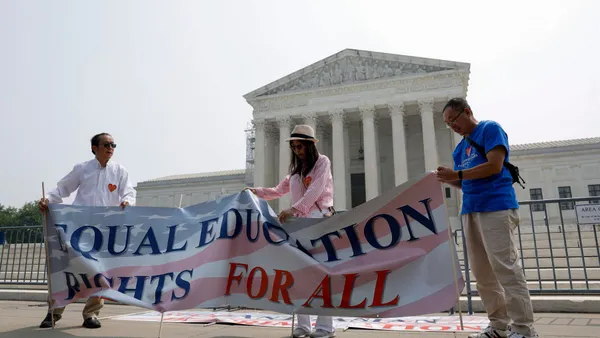Georgia public colleges and policymakers said Thursday they’re jumping into the burgeoning movement of direct admissions, which automatically admits high school students to a particular institution.
Beginning this week, more than 120,000 high school seniors in public and private K-12 schools will receive a letter signed by Gov. Brian Kemp, informing them that some of Georgia public colleges are reserving a spot for them for the fall 2024 term. These admit offers are conditional, meaning a student must still apply to the college and provide information like their high school transcript.
The 22 institutions in the Technical College System of Georgia, as well as most of the 26 colleges in the University System of Georgia, or USG, are participating in the program, called Georgia Match.
Students will be eligible to attend any of the technical colleges. And their academic record in certain subjects will determine which USG colleges hold a seat for them — applicants with higher grades in English, math, science and foreign language courses will have more institutions available to them.
USG’s three most selective institutions — Georgia College & State University, the Georgia Institute of Technology, and the University of Georgia — will not take part.
That trio has stricter admissions criteria that require an SAT or ACT score, which the other USG universities no longer mandate.
Georgia state officials said in a public statement Thursday that the venture means to connect a broader swath of students to higher education, including those who might not have considered college in the first place.
During November, participating colleges will waive fees for students applying through Georgia Match.
"Georgia Match is a great example of the historic success we can achieve when stakeholders across the education spectrum work together," Kemp, a Republican, said in the statement. "This program will ensure that every high school student in our state knows they have options to learn and succeed here in the No. 1 state for business.”
Other states and higher ed organizations that have implemented direct admissions have cited college access goals similar to Georgia’s. These types of initiatives have taken on new importance amid significant admissions upheaval, including the U.S. Supreme Court's June ruling against race-conscious practices.
Idaho became the first state in 2015 to wade into direct admissions. Recent research found the program lifted first-time undergraduate enrollment between 4% and 8%.
However, it did little to entice students who were eligible for federal Pell Grants, which benefit low- and moderate-income populations.
One of the largest direct admissions experiments comes from the Common Application, an online portal enabling students to apply to 1,000-plus participating institutions.
The Common App has tried out direct admissions since 2021. In the most recent round of its pilot, 13 institutions proactively offered slots to 33,000 students.
Researchers working with the Common App found students with direct admissions offers were two times more likely to apply to one of those colleges than those without them.









 Dive Awards
Dive Awards






